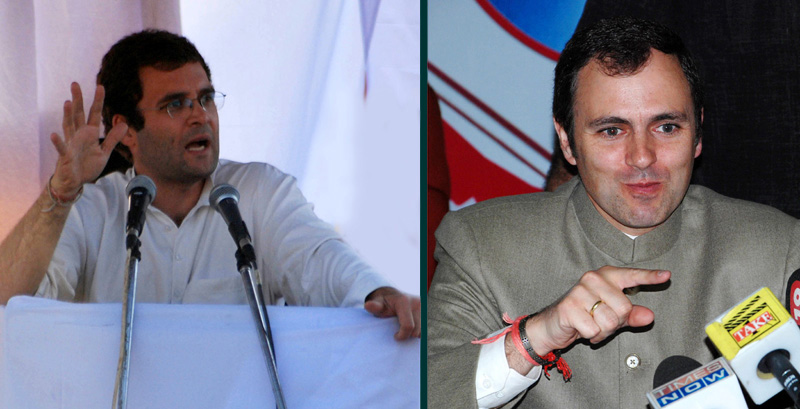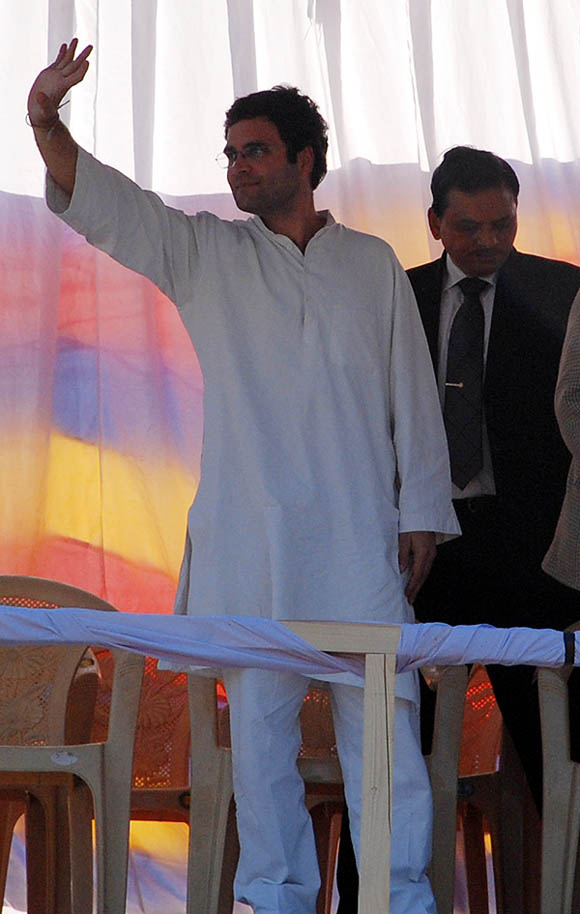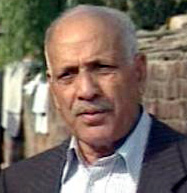The pain and its panacea
 |
|
The pain and its panacea
K.N. Pandita  |
|
But he was quick to load it with pain-killer predicate of connecting Kashmir to the vast developmental activity in the country. He put the ball in Omar’s court and with artistic finesse. Two reasons of non-connectivity of Kashmir can be presumed. One is the special constitutional status of the State to which Kashmir leadership adduces super sensitive sanctimony. In the process, the leadership fails to realise what checks it exerts on the alignment of J&K with the developmental spectacle in the country. The second reason of non-connectivity could be the delivery deficit. In either case, inquisitive commentators will expect apt reaction from the Chief Minister. If the special status phenomenon in its existing liberal form did not help doing a tango with New Delhi, will “greater autonomy” fill up the gap? Will it not find them distancing a step or two farther? We do not mean to say that Article 370 is discarded with a single stroke of pen; but we do assert and with full confidence that the urge for connecting J&K to rapid developmental spectacle of the country will translate the Nehruvian guffaw (ghiste ghiste ghis jayega) into practice. NC leadership has tumbled on this harsh reality, albeit belatedly, and hence the change of mind to passivity. All emphasis is laid on local delivery and its optimization. Rahul even went to the length of mentioning major areas in which delivery is urgently desired: education, health, infrastructure, connectivity and power etc. He has financial monsters among his entourage. Sensing the serious import of Rahul’s precocious comment, Farooq Abdullah tried to patriarchate the situation and chose to stay clear of controversy on promulgation in the State of constitutional amendments to the Panchayati Raj Act, something with inflammatory potential.  But willy-nilly Omar Abdullah found himself obliged to respond to Rahul’s maverick offer. “Political solution of Kashmir problem” is his patent rhetoric and he repeated it in response obviously trying to find shelter behind it. Touching on the peripheries of the cliché, Omar conceptualized two parallel lines of dialogue: one between the centre and the state and the other between India and Pakistan, adding the footnote “in the larger interests of India”. But willy-nilly Omar Abdullah found himself obliged to respond to Rahul’s maverick offer. “Political solution of Kashmir problem” is his patent rhetoric and he repeated it in response obviously trying to find shelter behind it. Touching on the peripheries of the cliché, Omar conceptualized two parallel lines of dialogue: one between the centre and the state and the other between India and Pakistan, adding the footnote “in the larger interests of India”. There is nothing specifically new in it. The real pain of Omar is how to reconcile unscrupulous local dissent to the vision of progressive and inclusive political arrangement that transcends boundaries of regional, sub-regional, cultural, ethnic and religious divide. New Delhi has been talking to Kashmiri inclusivists as well as exclusivists. Several rounds of talks were held, all inconclusive. The Interlocutors spent almost a year meeting sections of Kashmir civil society of all hues and colours but with no positive result. Their report has been rejected by nationalists, separatists, rightists, leftists, conformists and non-conformists, one and all. Now they want to have another year of sojourns in Kashmir at the cost of public exchequer to undo what they did in their first initiative. Farcical, isn’t it?. With whom does Omar Abdullah want New Delhi to talk to and for what? As regards the second part of his wish list, India has gone to the length of climbing down on 26/11 in favour of facilitating bilateral talks; provided a team of Pakistani judicial functionaries access to the witnesses of 26/11 who have implicated Pakistan-based LeT activists, agreed to the revision of visa regime knowing that the facility is misused and many more things. In return, Pakistan has intensified infiltration across the LoC and IB, facilitated her subversives to dig tunnels across international border, open unprovoked firing from across the border, smuggle fake currency notes into India and clandestinely extend support to anti-India activities of insurgents in our Eastern States. Nearer home, externally sponsored militants are doing all they can to disrupt Panchayat institution in J&K so assiduously built by the ruling coalition. Repeated demand that New Delhi solve the “political issue of Kashmir” would become meaningful to an ordinary observer if it was accompanied by comprehensive roadmap based on ground realities. We would suggest the External Affairs Ministry to work out some modality under which Omar Abdullah could engage Pakistani leadership for productive and result-oriented dialogue. It will be reminded that in May 1964, Pandit Jawaharlal Nehru, the then Prime Minister of India, had sent Sheikh Muhammad Abdullah to Pakistan on a similar mission. If Omar Abdullah succeeds in bringing about breakthrough in the impasse, assuredly it will be a service to the people of his country. Omar Abdullah will need to bid farewell to the beaten path of mollifying the masses of people by harping on a tune that is no more sonorous but thin. He will need to take lead in breaking new ground in Kashmir politics. He hardly needs to be reminded that even a layman in Kashmir will say with full confidence and without an iota of doubt that Kashmir question has lost its thrust and explosive nature ever since Pakistan came to be recognized by the world community as the home of international terrorism. Political advisors of the Chief Minister must show that they are men of wisdom and vision to distinguish such political issues as have run out of time from what need to be given priority. It is they who need to spell out the real pain of the Chief Minister. As far as Rahul Gandhi is concerned, we have already said that he has a vision of how he can connect Kashmir to the vast national developmental agenda. Will the State catch the time by forelock? |
|
|
 *K.N. Pandita: Born in Baramulla, Kashmir in 1929 did graduation from St. Joseph’s College in Arts with English literature. The tribal raid of October 1947 destroyed his family like hundreds of other Kashmiri Hindu families in Baramulla. *K.N. Pandita: Born in Baramulla, Kashmir in 1929 did graduation from St. Joseph’s College in Arts with English literature. The tribal raid of October 1947 destroyed his family like hundreds of other Kashmiri Hindu families in Baramulla.After doing M.A. from Punjab University, he served as Lecturer in State Degree Colleges and in 1958 earned a scholarship from the Indian Ministry of Education for higher studies at the University of Teheran, Iran. Four years of study and research at the University of Teheran earned him a Ph.D. in Iranian Studies. He joined Kashmir University in 1963 and it’s Centre of Central Asian Studies in 1976. He rose to become Professor and Director of this Centre till his superannuation in 1987. He is not only the first Kashmiri to obtain Ph.D. from Teheran University but is also the first to have worked in close collaboration with a number of Central Asian Academies of Science particularly the Tajik Academy. His travelogue titled My Tajik Friends won him Sovietland Nehru Award 1987. |
|
|
| Copyrights © 2007 Shehjar online and KashmirGroup.com. Any content, including but not limited to text, software, music, sound, photographs, video, graphics or other material contained may not be modified, copied, reproduced, republished, uploaded, posted, or distributed in any form or context without written permission. Terms & Conditions. The views expressed are solely the author's and not necessarily the views of Shehjar or its owners. Content and posts from such authors are provided "AS IS", with no warranties, and confer no rights. The material and information provided iare for general information only and should not, in any respect, be relied on as professional advice. Neither Shehjar.kashmirgroup.com nor kashmirgroup.com represent or endorse the accuracy or reliability of any advice, opinion, statement, or other information displayed, uploaded, or distributed through the Service by any user, information provider or any other person or entity. You acknowledge that any reliance upon any such opinion, advice, statement, memorandum, or information shall be at your sole risk. |